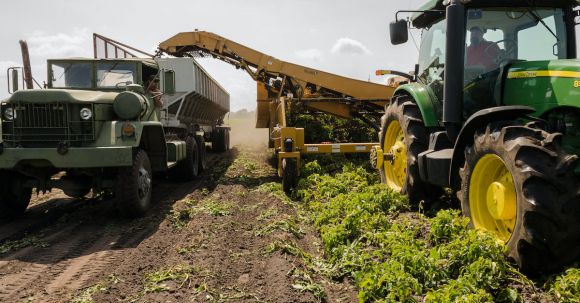Biotechnology is revolutionizing the agricultural industry by introducing innovative techniques that enhance productivity, improve crop quality, and promote sustainable farming practices. With the increasing global demand for food, biotechnology has emerged as a crucial tool to address the challenges faced by farmers and ensure food security for a growing population. This article explores the various ways in which biotechnology is transforming agriculture.
Enhancing Crop Yield and Quality
One of the primary goals of biotechnology in agriculture is to enhance crop yield and quality. Through genetic modification, scientists are able to introduce traits into plants that make them more resistant to pests, diseases, and environmental stressors. This enables farmers to achieve higher yields and reduces the need for chemical pesticides and fertilizers. Additionally, biotechnology allows for the modification of crops to improve their nutritional content, making them more beneficial for human consumption.
Developing Drought-Tolerant Crops
In many regions around the world, water scarcity is a major challenge for farmers. Biotechnology offers a solution by enabling the development of drought-tolerant crops. Through genetic engineering, scientists can introduce genes that enhance a plant’s ability to withstand drought conditions, allowing farmers to cultivate crops in arid regions with limited water resources. This not only increases agricultural productivity but also reduces the strain on water supplies.
Improving Pest and Disease Management
Biotechnology plays a crucial role in managing pests and diseases that pose a threat to agricultural crops. By genetically modifying crops, scientists can introduce traits that make them resistant to specific pests or diseases. This reduces the reliance on chemical pesticides, which can be harmful to the environment and human health. Biotechnology also enables the development of diagnostic tools for early detection of plant diseases, allowing farmers to take timely action to prevent the spread of infections.
Promoting Sustainable Farming Practices
Biotechnology promotes sustainable farming practices by reducing the environmental impact of agriculture. Genetically modified crops require fewer chemical inputs, such as pesticides and fertilizers, which reduces the pollution of soil and water resources. Additionally, biotechnology enables the development of crops that are more efficient in their use of nutrients, leading to reduced nutrient runoff and improved soil health. These sustainable farming practices contribute to the preservation of natural resources and the long-term viability of agriculture.
Addressing Global Food Security
With the world population projected to reach 9.7 billion by 2050, ensuring food security is a pressing concern. Biotechnology offers solutions to address this challenge by increasing agricultural productivity and improving crop resilience. By developing crops that are more resistant to pests, diseases, and environmental stressors, biotechnology enables farmers to produce more food with fewer resources. This helps to meet the growing demand for food and reduce the risk of food shortages in the future.
Conclusion: A Promising Future for Agriculture
Biotechnology is revolutionizing agriculture, offering innovative solutions to the challenges faced by farmers worldwide. From enhancing crop yield and quality to developing drought-tolerant crops and improving pest and disease management, biotechnology is transforming the way we produce food. By promoting sustainable farming practices and addressing global food security, biotechnology is paving the way for a promising future in agriculture. As technology continues to advance, the potential for biotechnology to further revolutionize the agricultural industry is vast, offering hope for a more sustainable and food-secure world.





